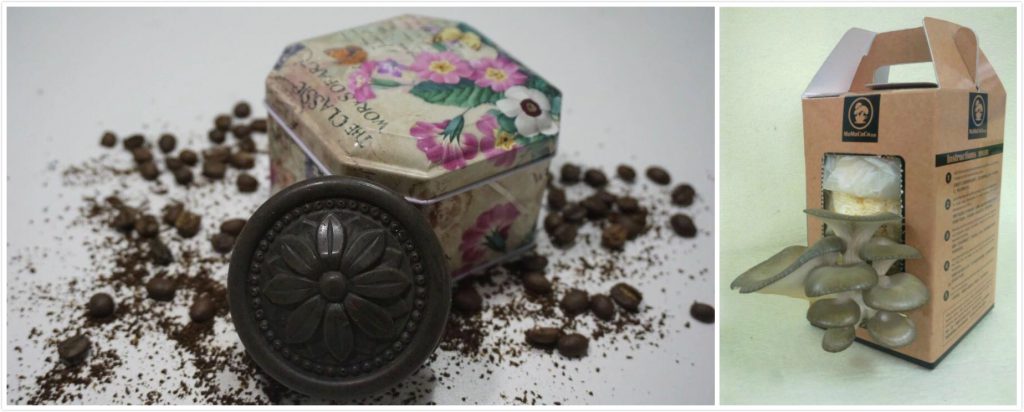How can we utilize the coffee grounds that we produced on a daily basis?
How can we encourage vulnerable groups to be self-sufficient and reintegrate into the society?
How can we help urbanite to reconnect to community and nature?
Each of these questions is complicated and challenging in itself, however Xingeng Workshop, A local organization founded in 2006 with the mission of supporting sustainable development by promoting community inclusion and developing organic farming, is trying to offer its unique solution to all of them in a sustainable way.
We recently had the chance to speak with Mr. Zhu Binzhao, the founder of Xingeng. We learned his journey of being a social entrepreneur, and more importantly, different programs Xingeng conducted for social good.
CR: Hi Mr. Zhu. Could you share more about your journey with us?
I came to China in 2002 with an initial intention of doing business in the food trade industry, and in 2006, I spent some time working with AIDS villages in Henan Province, and through my experience, I came to understand that giving financial support is not a long term solution. That, I, needed to create an opportunity for them to work and earn money by themselves which would help them to be self-sufficient, build confidence and return to the society.
Late in 2006, I established Xingeng Workshop as a social enterprise in Shanghai, with the goal to help vulnerable groups be self-sufficient and reintegrate into the society. With this idea in mind, I started my first program to train those villagers in Henan ADIS villages to make profitable handicraft products by using their own sewing machines. After 4 years, most of the participants returned to society successfully and this program ended as our mission has completed.
CR: Could you briefly introduce Xingeng Workshop?
Xingeng literally means cultivate delightedly, our mission is supporting sustainable development by promoting community inclusion and developing organic farming.
As I mentioned before, I first registered Xingeng Workshop as a social enterprise. Four years later, considering the nature of our programs and operational needs, I registered another organization as a non-profit organization. Currently, we have 2 organic farms in Jinshan and Qingpu which are operated by the social enterprise, where we conduct research on soil improvement and produce environmental products. While our community programs are mainly organized by the NGO which has opportunities to work with government departments and other local partners. We have more than 10 full-time staff and they are in charge of different projects in different locations in Shanghai.

CR: What are your main programs?
As our signature programs, “Urban Farm” and “Little Farmer”, are partnerships with government departments, communities and schools to provide different farming activities for all community members to engage with.
At present, we have “Urban Farm” program, our “Community Micro Farm in more than 10 communities in Baoshan, Jing’An and Pudong districts in Shanghai where families can adopt a vegetable plot, participate in all kinds of activities to learn how to grow vegetables and celebrate the joy of harvest altogether.
On our farms in Qingpu and Jinshan, we mainly working on plant diversification, post-processing of products and utilizing organic waste by resource recycling. It is a program that is more than 10 years old now, and we are cooperating with the local Academy of Agricultural Sciences on the standardization of the fertilizer.
More than experimental fields for soil improvement, they are also the bases for ecological education that promote the concept of organic farming, and environmental protection, to the public. On each farm we have education professionals who provide guided tours, and guests can cook organic food on their own or have fruit picking in the farms.
We welcome companies to organize team-building activities here and it is also a good place for family activities!
CR: Could you tell us about your coffee grounds program?
From 2009, we have started to collect coffee grounds from different companies and put them processed into packaged planting soil for mushrooms, other vegetables and flowers. While enjoying those planting packages, people could have hands-on planting experience while practicing an environment-friendly lifestyle. Furthermore, we also make coffee grounds into handmade biodegradable soap as our new green products.

CR: What are your biggest challenges? And did you find any solutions?
I believe our biggest challenge is still our financial constraint. However, we have always believed that we cannot rely on external funding all the time, which is why we have focused on diversifying our revenue mainly in two ways: product sales and event and education services for companies and individuals who are interested in environmental related topics.
CR: What is your plan for the next five years?
In the next few years, we will continue to focus on the work that we are currently doing at our two farms working on water conservation and soil improvement programs, and we hope that we can share our technology and research results with other farms.
CR: How can our readers and corporate companies support your organization and programs?
We welcome companies to work with us on developing more green products or provide technical support, and invite children and families to come visit our farm!!
Please feel free to contact us through the below channels!
WeChat Official Account: xingeng_workshop
Tel: 021-58890786
Our Taobao Shop
